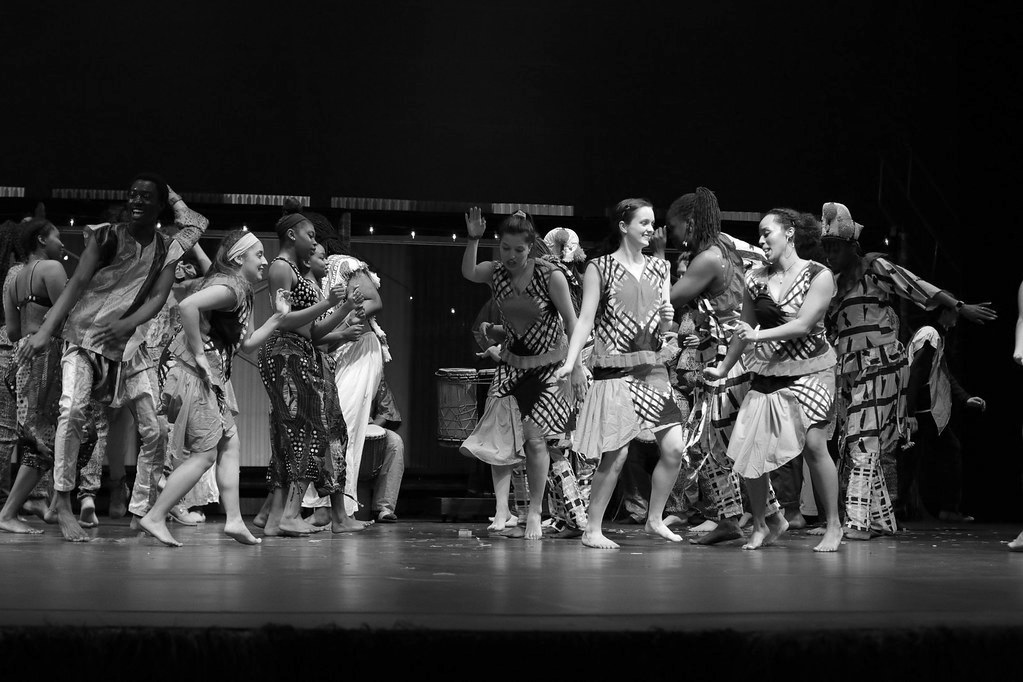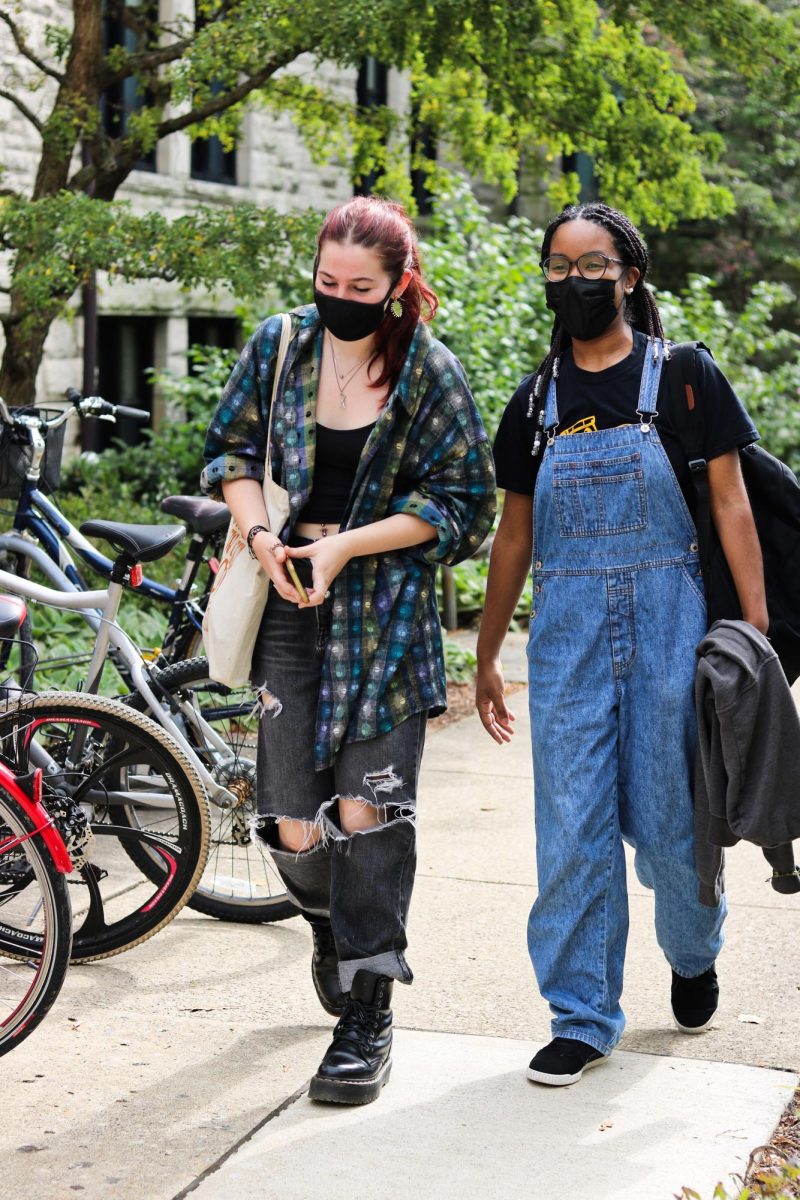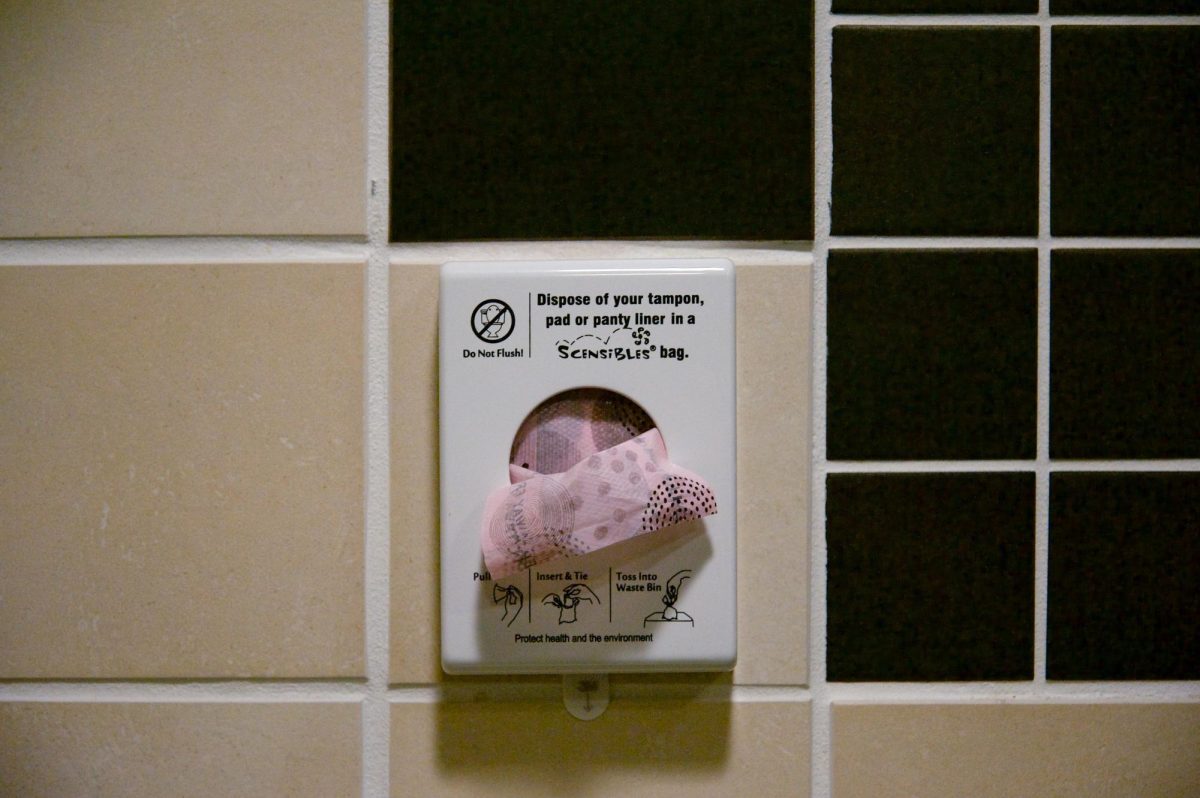Azariah’s Café, like many other fast dining places on-campus, is officially fully mobile. The cafe transitioned during Winter Term with limited options like 12-ounce cups for drinks and no bakery items. This shift from half in-person to all- was relatively smooth and easy to pick up for the staff, even if inherently a bit awkward at first. With the short-term transition now over, mobile orders are in full swing for the start of the spring semester.
Azzie’s is not the only dining location that has gone entirely mobile. The Rathskeller has been mobile since fall 2023 and has been bustling with students and workers ever since. Not to mention, Umami is half in-person and half online and is also one of the most hectic places to be at lunch. All these places are hotspots for a well-earned reason: the food and drinks are just too good to resist.
Often, I hear references to them as a “chill spot” during a full day of courses or even the place where students get their breakfasts every morning, panicking if they don’t. In other words, the support and love for the food at these grab-and-go places is endless. But, with the new ordering system Oberlin and AVI Fresh have implemented, ordering has become slightly more complicated and inconvenient. Rushes of people have been ordering online but end up waiting an hour, even when the app says to wait 10 minutes until pick up. Why has mobile ordering gone wrong at Oberlin?
Ideally, mobile ordering is the best option. It is convenient, speedy, and requires no human interaction — which some would argue is its best point. Also, it is a great way for food workers to monitor and have a system to organize orders; the system works for employees to better organize tasks. Therefore, a sense of equilibrium should be present. Workers and students feel like they are producing or getting the best-quality food without a high-stress and intense environment.
However, how often does “convenience” become the enemy? Mobile ordering systems are supposed to help out both workers and customers, but if these grab-and-go places are to live up to their names, something needs to change.
“From an outside perspective, as somebody who does not work with AVI or at Azzie’s, I feel like the amount of strain that this has put on student employees…is so completely unfair and such a subversion to what they have probably signed up [for] the job,” Conservatory second-year Will Judd said.
If mobile ordering is no longer convenient but is instead making students less inclined to order and workers more stressed, then the Oberlin mobile ordering system is incompatible with Oberlin’s grab-and-go food life. But, this doesn’t have to be a lost cause. The College should instead invest in a new system that actually works smarter and doesn’t make employees work harder. With better investment in a new app, system programming that paces out orders, and hands-on technical training, a new system would be an asset to AVI instead of a constant issue.
On the other hand, Samantha Henry, Partnership Manager for Goldberry Roasting Company — the coffee brand served in Azzie’s — deals specifically with Goldberry Roasting Company’s relationship with AVI and has nothing but good things to say about their partnership, including their facilitation of the transition to mobile ordering.
Goldberry and AVI decided to become partners during the 2020 spring semester. At the time, Henry and her husband were out of work because of the pandemic.
“AVI has played a huge role in supporting us both personally and professionally, freeing us up to focus on our passion of serving coffee to Oberlin’s campus,” Henry said, adding that working at Azzie’s made her feel “welcomed and loved by our student workers and customers.”
After the first week, Henry also mentioned that workers were also suggested to give feedback on how they feel about the new system “to better serve our employees and Oberlin’s campus.” Speaking on Azzie’s transition to fully-mobile ordering, Henry acknowledged that this change was initially difficult but praised AVI’s help.
“AVI has made themselves available to us at all times for assistance and problem-solving,” she said.
Henry also mentions how student workers had the chance to talk to AVI about their concerns and questions, as well as had a training day to adjust to the new system. After the first week, workers were also encouraged to give feedback on how they felt about the new system so that it can be adjusted to better serve employees and Oberlin students, which Henry notes is everyone’s number one priority. Henry would also like to convey a thank you to all the dedicated employees at Azzie’s and the students at Oberlin.
AVI’s effort to integrate mobile ordering is clear. As we see from the Rathskeller or Umami, though, students are quickly outgrowing the online mobile ordering system. There are many ways to solve this issue. Grab-and-go places are each different and are special to the campus and its students. Instead of there being an entirely new system, perhaps AVI could tailor it to each grab-and-go location.
What is clear, though, is that without the wonderful workers, food, and support from these places, I would not be writing this article. I want to give a special thank you to all who work hard to get mobile orders into students’ hands.





